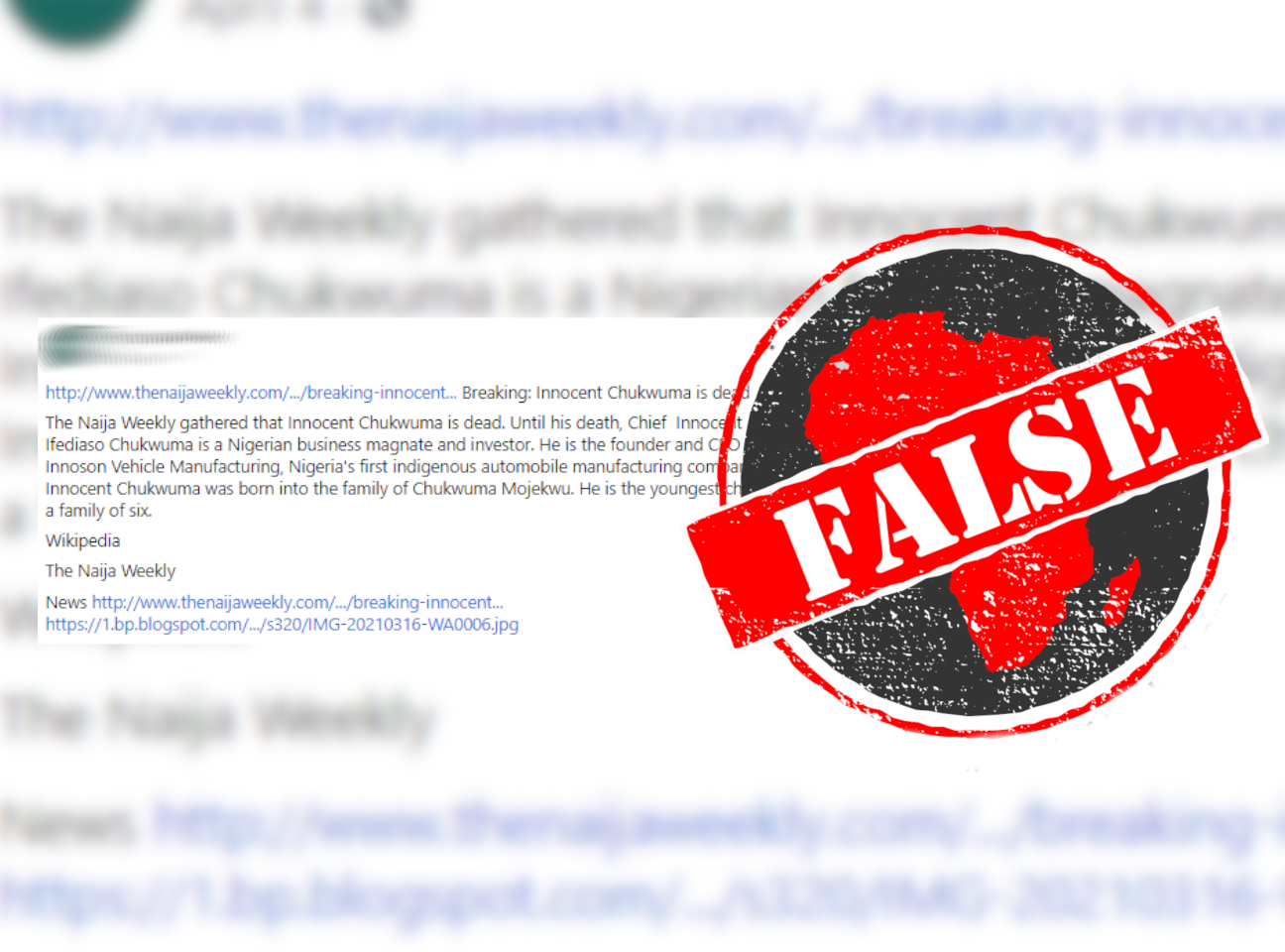A blogpost claims that the chief executive of Nigerian automobile and bus manufacturing company Innoson Vehicle Manufacturing is dead.
Under a photo of Innocent Ifediaso Chukwuma, the chair of Innoson, the 3 April 2021 post claims that the 55-year-old human rights activist died of cancer. The claim has also appeared on Facebook.
But this is a case of mistaken identity. Innocent Chukwuma, the director for the Ford Foundation’s West Africa office, died on 3 April in Lagos. The Ford Foundation is a US-based human welfare foundation.
The chair of Innoson, who shares the name “Innocent Chukwuma”, is still alive.

Two – unrelated – Chukwumas
The late Innocent Chukwuma also worked with the Abuja-based Cleen Foundation as a researcher and consultant on policing in Nigeria.
As reported by Premium Times Nigeria and the Ford Foundation, he died of acute myeloid leukaemia, an invasive blood cancer.
Nigerian celebrities, politicians and human rights activists mourned his death on Twitter.
Innocent Ifediaso Chukwuma, on the other hand, is 60 years old, born in 1961, according to his bio on the Innoson website.
Africa Check spoke to the general manager of sales at Innoson, Obum Osigwe, who confirmed that the late Chukwuma is not the chief executive of Innoson.
Osigwe said: “We are not oblivious to the pain his family bears, and we wish them best in these times.”
He added that the company had ignored the fake reports, out of respect for the Chukwuma family and the excellent social justice work that had defined the life of the deceased.
Republish our content for free
For publishers: what to do if your post is rated false
A fact-checker has rated your Facebook or Instagram post as “false”, “altered”, “partly false” or “missing context”. This could have serious consequences. What do you do?
Click on our guide for the steps you should follow.
Publishers guideAfrica Check teams up with Facebook
Africa Check is a partner in Meta's third-party fact-checking programme to help stop the spread of false information on social media.
The content we rate as “false” will be downgraded on Facebook and Instagram. This means fewer people will see it.
You can also help identify false information on Facebook. This guide explains how.


Add new comment